Thinking about investing while living in Malaysia? You’re not alone. Every year, more expats are discovering that Malaysia isn’t just a place to enjoy good food and great weather, it’s also an increasingly smart place to grow your money.
From property and stock markets to cutting-edge fintech and retirement funds, Malaysia in 2025 offers a wide spectrum of investment choices backed by a relatively stable economy and welcoming policies. Whether you’re here to stay long-term or just looking to make your money work harder while you’re posted here, this guide breaks it all down in plain language.
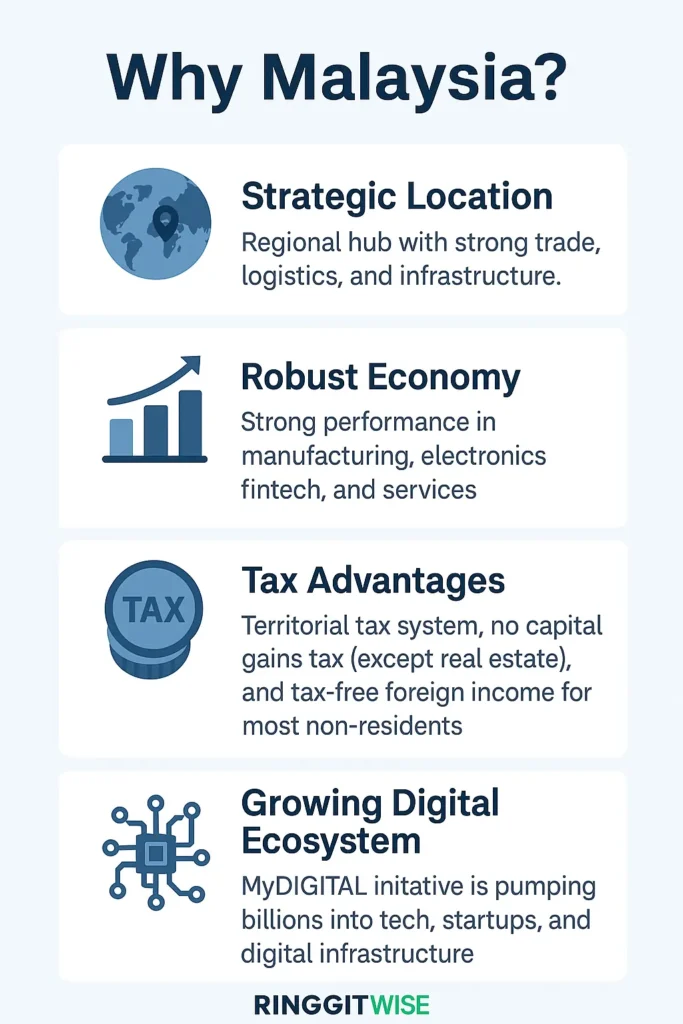
Residency Options for Investors
1. Malaysia My Second Home (MM2H)
- New 3-tier system: Silver, Gold, Platinum, plus SEZ Tier.
- Fixed deposits range from USD 32,000 to USD 1,000,000 depending on tier.
- Property requirement from RM 600,000 to RM 2 million.
- Visa duration: 5 to 20 years, renewable.
- Work allowed only under Platinum Tier.
- For a complete breakdown, see our full guide: MM2H Malaysia 2025: How to Apply for Residency & Buy Property
2. Premium Visa Program (PVIP)
- For high-net-worth individuals with offshore income of RM 40,000+/month.
- RM 1 million fixed deposit, 20-year visa.
- Can work, own businesses, and withdraw 50% of the deposit after 1 year.
3. Digital Nomad Visa
- For remote workers in digital sectors
- Minimum income of USD 24,000/year.
- Popular among tech freelancers and consultants.
4. Employment Pass / Work Visa
- Issued to foreign professionals employed in Malaysia.
- Full access to local financial instruments and investment platforms.
- Business ownership typically not allowed under this visa.
What Can You Invest In? (Visa Comparison)
| Investment Type | MM2H | PVIP | Digital Nomad Visa | Employment Visa |
| Property Ownership |  with restrictions with restrictions |  no restriction no restriction |  case-by-case case-by-case |  standard process standard process |
| Open Local Bank Account |  |  |  |  |
| Fixed Deposits |  |  |  |  |
| Stock Market (Bursa) |  |  |  |  |
| Mutual Funds / Robo Advisors |  |  |  |  |
| Crypto via Licensed Platforms |  |  |  |  |
| Work in Malaysia |  except Platinum except Platinum |  |  |  |
| Run a Business |  |  |  |  |
| Startup / Angel Investing |  passive only passive only |  |  depends on structure depends on structure |  |
| Local Financing / Loans |  limited to 70–80% limited to 70–80% |  flexible flexible |  may be restricted may be restricted |  standard eligibility standard eligibility |
 Allowed
Allowed
 Limited / Case-by-case
Limited / Case-by-case
 Not Allowed
Not Allowed
Top Investment Opportunities for Expats (With Estimated Returns)
1. Malaysian Property Market
- Average Annual Return: 4% – 6% (rental + capital appreciation).
- Foreigners can buy high-rise units, landed property (with approval), and commercial units.
- Minimum prices by state: RM 500,000 to RM 3 million.
- No capital gains tax after 5 years (Real Property Gains Tax applies earlier).
- Financing available for MM2H holders and residents (50–90% margin).
2. Bursa Malaysia Stock Market
- Average Annual Return: 5% – 9% (dividends + capital gains).
- Open a CDS (Central Depository System) and trading account with a licensed broker.
- Trade Malaysian equities, REITs, ETFs, and bonds.
- Top brokers: Maybank, Rakuten Trade, FSMOne, MIDF Invest.
3. Collective Investment Schemes
- Average Return: 4% – 8% depending on fund type.
- Unit Trusts (Mutual Funds): Offered by banks and platforms like FSMOne.
- Robo-Advisors: Low-cost, automated platforms like StashAway, Wahed Invest, and Kenanga KDI.
- Shariah-compliant options widely available.
4. Fixed Deposits
- Interest Rate: 2.8% – 4.2% p.a.
- Simple and safe investment option.
- PIDM-insured. Steady and low risk.
- Available to expats with valid visas and local bank accounts.
5. Gold Investments
- Average Annual Return: 3% – 7% (price fluctuation dependent).
- Options include physical gold, ETFs, and bank gold accounts.
- Gold investment accounts (e.g. Maybank Gold Account) offer convenience without storage hassle.
6. Cryptocurrencies (Licensed Platforms)
- Potential Returns: Highly volatile; 10% – 100%+ possible annually (with high risk).
- Regulated by the Securities Commission.
- Platforms like Luno, Tokenize, and Sinegy are licensed.
- Income from crypto may be taxable depending on residency status.
7. Startup Investing & Angel Capital
- Typical Return Range: 15% – 30% IRR (high risk, illiquid).
- Government encourages foreign investment in local startups.
- Use equity crowdfunding platforms like pitchIN or ECFx.
- High risk, high reward. Conduct proper due diligence.
8. Private Retirement Scheme (PRS)
- Expected Return: 4% – 6% annually.
- Voluntary retirement savings scheme.
- Some providers allow expat participation, especially with long-term residency or valid work permit.
- Contributions may be eligible for tax relief if you’re a tax resident.
9. Bonds & Sukuk (Islamic Bonds)
- Return Range: 3.5% – 5% p.a.
- Accessible via banks and investment platforms.
- Sukuk offers Shariah-compliant options.
- Ideal for low-risk, income-focused investors.
10. Real Estate Investment Trusts (REITs)
- Yield Estimate: 5% – 6.5% annually (net dividend yield).
- Tradeable on Bursa Malaysia.
- Lower entry point than direct property ownership.
- Provides exposure to commercial, retail, and industrial property sectors.
11. Structured Investments / Wealth Products
- Estimated Yield: 4% – 8% (depends on structure).
- Offered by banks like HSBC, CIMB, Maybank.
- Combine deposits with derivatives for higher returns.
- Typically suited for PVIP or MM2H investors.
12. Forex & Commodities Trading
- Return Potential: Variable; can be 5% – 20% monthly (high risk).
- Accessible through global platforms (ensure compliance with Malaysian regulations).
- High risk, suitable for advanced investors.
13. Private Equity & Venture Capital Funds
- Target IRR: 15% – 25% (long-term).
- For high-net-worth individuals.
- Investments in early-stage companies or unlisted businesses.
- Requires due diligence and longer holding periods.
Join thousands of Malaysians receiving expert advice on saving, investing, and financial planning every week.
Tax Considerations (2025)
- Territorial tax regime: Foreign income is tax-free unless remitted into Malaysia (for tax residents).
- Flat 30% tax for non-residents on Malaysian-sourced income.
- Tax residents (182+ days/year) enjoy progressive tax rates (0–30%) and reliefs.
- Dividend income above RM 100,000 will be taxed at 2% from YA2025.
- No tax on capital gains from shares, except for Real Property Gains Tax (RPGT).
- Malaysia has Double Taxation Agreements (DTAs) with over 70 countries.
Quick Note for Expats: Foreign income like pensions or offshore savings is generally not taxed in Malaysia, unless you're a tax resident (182+ days/year) and you remit it into the country. Even then, exemptions and double tax treaties may apply. When in doubt, check with a local tax advisor.
Maximize Your Tax Relief: If you're a tax resident, you may be eligible for personal tax reliefs through selected retirement and insurance-linked investments. These don’t apply to all expats, but if you qualify, they’re a smart way to invest and save on taxes.
For example:
Private Retirement Scheme (PRS): Up to RM3,000 annual tax relief for contributions.
EPF (Employees Provident Fund): If you're employed in Malaysia and contribute to EPF, you can claim up to RM4,000 in combined relief with life insurance premiums.
How to Start Investing in Malaysia
- Get the Right Visa: MM2H, PVIP, Digital Nomad, or Employment Pass.
- Open a Malaysian Bank Account.
- Register with LHDN if earning local income (get tax file number).
- Choose Investment Type: Property, stocks, ETFs, crypto, funds, etc. Based on risk, return, and access.
- Open Required Accounts: CDS + broker (for stocks), platform login (for robo-advisors), or engage a property lawyer.
- Know the Process: Stamp duties, SPA, and state approvals for property.
- Manage Your Portfolio: Use apps, financial planners, or robo-advisors.
Should I Invest in Malaysia or Back in My Home Country?
This is one of the most common questions expats have, and it’s a smart one. The truth? It doesn’t have to be either or.
Many expats choose to keep investing in their home country because it’s familiar, tied to their pension plans, and often easier to manage across currencies or tax systems. At the same time, others choose to diversify into Malaysian investments to take advantage of local returns, tax benefits, or simply because they plan to be here for a while.
Here’s a helpful way to think about it:
- If you’re staying long-term in Malaysia, investing locally makes sense.
- If you want diversification, consider holding assets in both markets.
- If you’re unsure how long you’ll stay, keep things flexible, liquid, accessible, and well-spread.
In short: you can do both, and many smart expats do.
Final Thoughts
If you’re an expat in Malaysia, the window to invest wisely is wide open. With tax-friendly perks, diverse asset choices, and low entry points, Malaysia offers you a real shot at building wealth while living abroad.
You don’t need to be an expert or go big on day one, just start. Make your money work smarter, not harder. Explore, experiment, and get familiar with the local landscape.
Plenty of expats have done it, and so can you.
Stay tuned with RinggitWise.my for simplified breakdowns, investment tips, and tools built just for expats making bold financial moves in Malaysia.
More Resources for Expats
- How to Become Rich in Malaysia (2025): A Step-by-Step Guide to Building Wealth
- Malaysia Expat Survival Guide 2025: Money, Tax, Banking & Living Costs
Disclaimer: This article is for educational purposes only and does not constitute financial advice. Always consult a licensed financial advisor before making major money decisions.

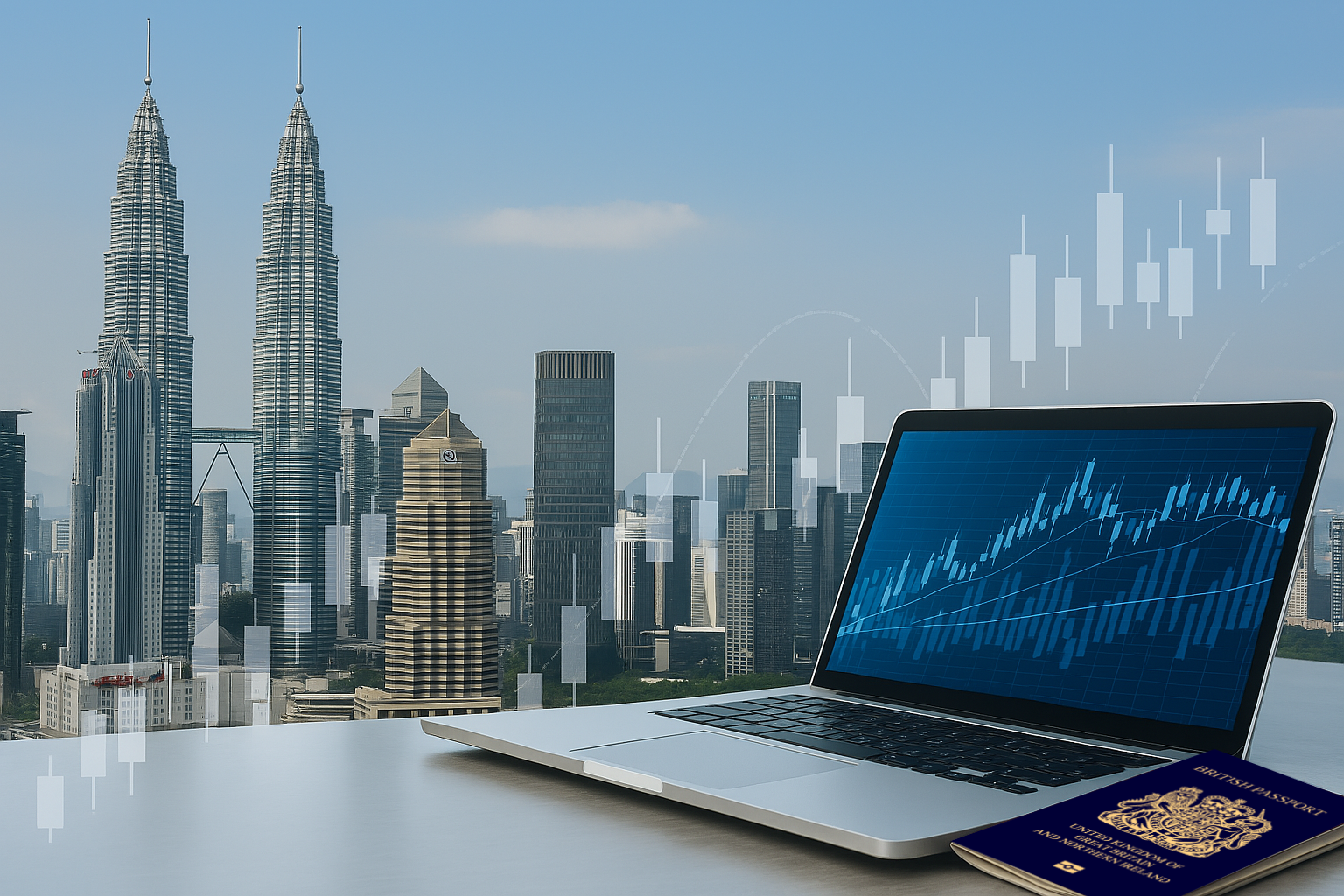

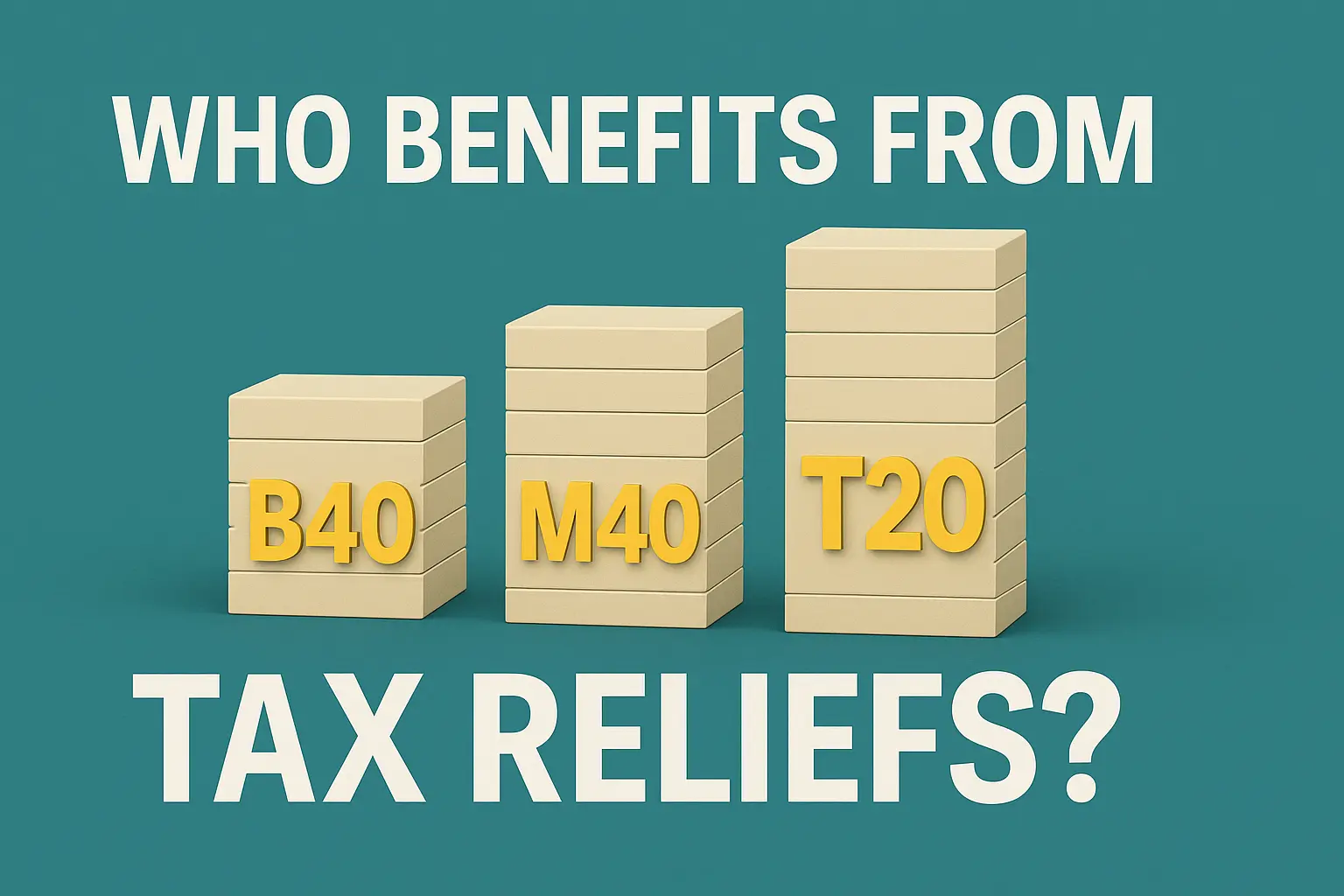
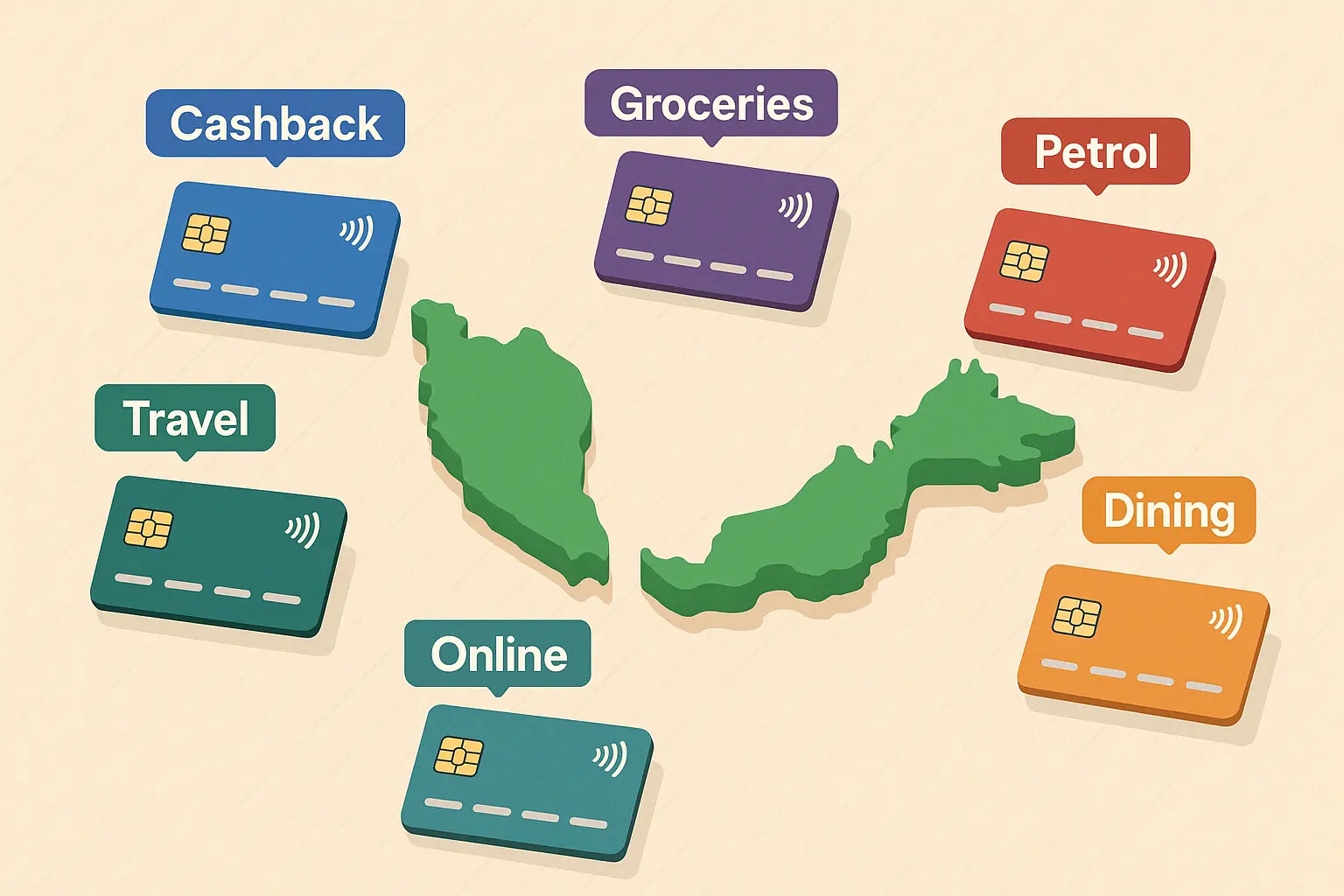
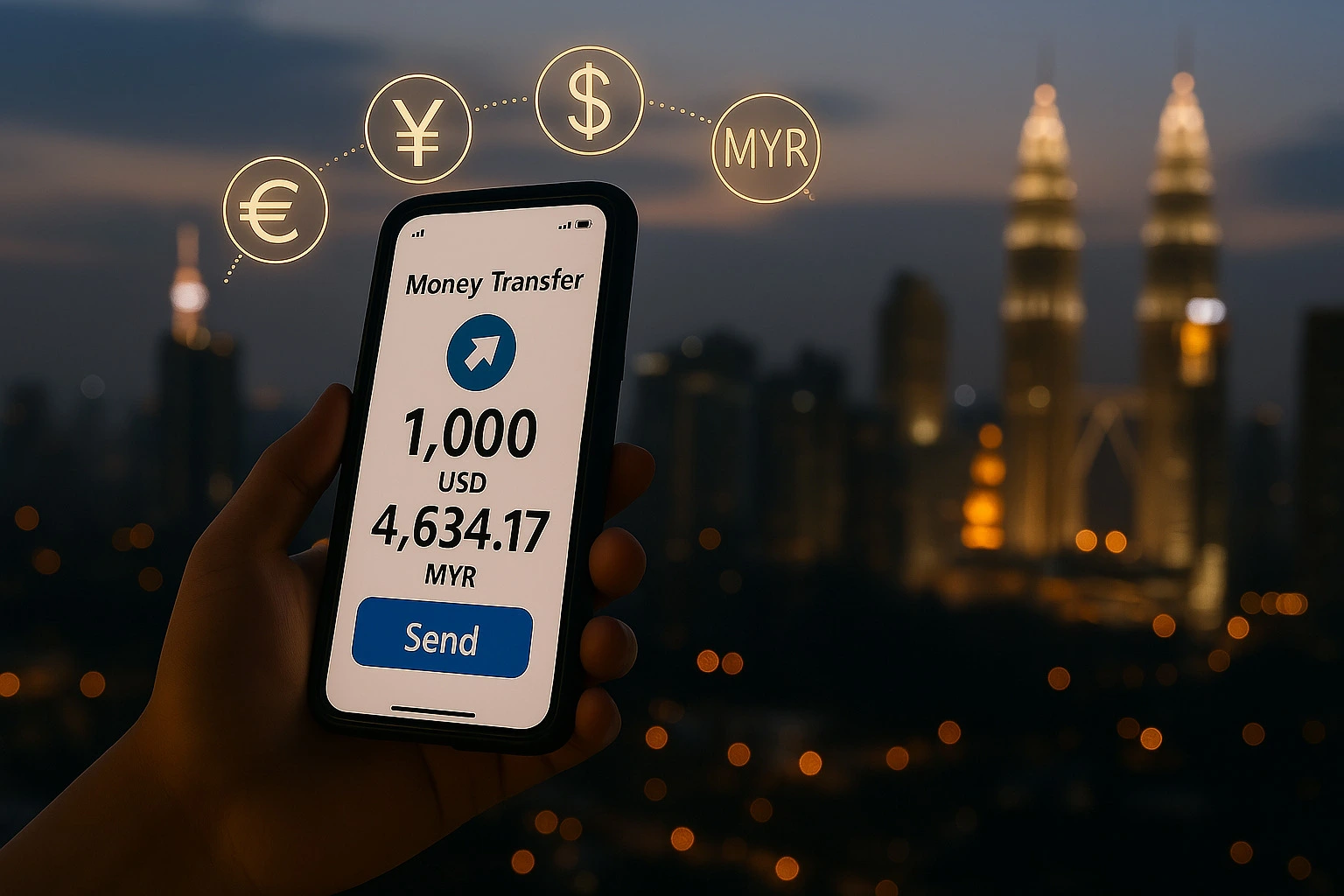
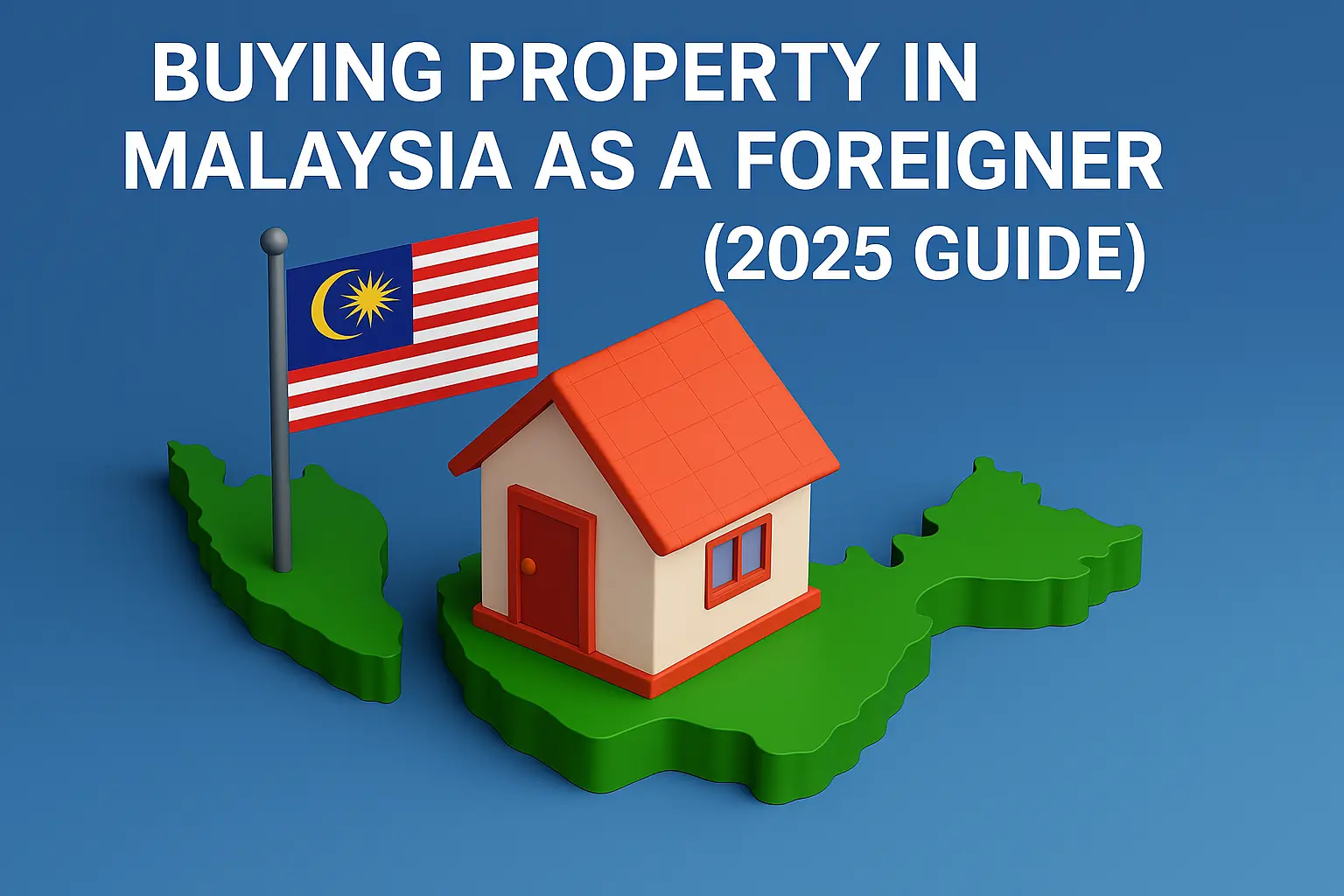
2 thoughts on “Ultimate Guide to Investing in Malaysia for Expats (2025)”